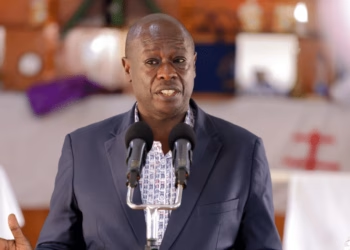A new Bill currently before the Senate prohibits naming streets, roads, or places in honor of living individuals.
The Street Naming and Property Addressing System Bill, 2024 outlines the procedures and conditions for naming streets, roads, and public places, which could hinder efforts by politicians and influential figures to have roads named after them.
“The primary goal of the Bill is to establish procedures and guidelines for creating a county addressing system, including the naming and addressing of streets and public places in counties,” the Bill states.
Last year, a court overturned Nairobi County’s decision to name Dik Dik Road after Cotu Secretary General Francis Atwoli.
Notably, opposition leader Raila Odinga has several roads named after him, including the former Mbagathi Road.
Sponsored by Isiolo Senator Fatuma Dullo, the proposed law is set for its first reading in the Senate. It mandates that all properties used for residential, commercial, civic, institutional, or governmental purposes, as well as vacant parcels in developed areas, must be assigned numbers as addresses for identification.
The Bill establishes a County Addressing System Committee in each county, responsible for ensuring that all existing and proposed streets within its jurisdiction are appropriately named and signed.
According to the Bill, counties cannot name a street, road, or place if the proposed name is offensive in terms of race, disability, gender, age, faith, or belief. Names that are similar to existing street names, promote businesses, or could cause confusion in pronunciation or spelling will also be rejected.
“Every street or public place name must be displayed prominently,” the Bill states.
The committee will regularly invite proposals for street and public place names, considering public input and selecting at least three names to submit to the governor. The governor must choose a name and publish it in the county Gazette and other media within seven days of receiving the proposed names.
“Within seven days of publication, the county executive committee member in charge of street signage must allocate appropriate addresses to all buildings and major facilities along the newly named street,” the Bill outlines.
The designated committee member is also responsible for renewing any street signs that become illegible or worn.
A street or public place name can be changed if someone petitions the committee to initiate the renaming process or if a majority of the committee members vote in favor of it.
The Bill imposes strict penalties for anyone who destroys or defaces a street name or number. Convicted individuals could face a fine of up to Sh100,000, imprisonment for up to two years, or both.
Additionally, the court may require the offender to restore the damaged street sign under the committee’s supervision.

















